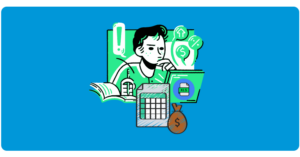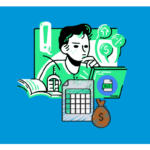In the complex world of personal finance, few challenges loom as large as dealing with exceptionally high bills. Whether it’s an unexpected medical expense, a significant home repair, or a substantial business investment, these financial obligations can feel overwhelming. However, there’s a secret to managing these daunting costs, and it lies in a combination of mindset and strategy.

Understanding High Bills
Before delving into strategies, it’s crucial to understand what constitutes a “high” bill. This definition can vary greatly from person to person, depending on individual circumstances. For some, a high bill might be a few hundred dollars, while for others, it could be in the tens of thousands. Generally speaking, a high bill is one that significantly impacts your financial stability and cannot be paid easily from your regular income or savings.
Common types of high bills include medical expenses, which can often catch us off guard with their magnitude. Legal fees are another category that can quickly escalate, especially in complex cases. Home repairs, particularly those involving structural issues or major systems like plumbing or electrical, can also result in eye-watering bills. For business owners, large investments in equipment or inventory can create substantial financial obligations. Even luxury purchases, while often planned, can fall into the category of high bills that require careful management.
The Mindset for Tackling Large Expenses
The secret to paying very high bills begins with the right mindset. Embracing financial responsibility is the first step. This means accepting the reality of the situation without succumbing to panic or despair. Instead of viewing the bill as an insurmountable burden, try to see it as a challenge – one that you’re capable of overcoming with the right approach.
Adopting a long-term perspective is also crucial. Understanding how this expense fits into your overall financial health can help you make better decisions. It’s important to see beyond the immediate discomfort and recognize that with proper management, this too shall pass.
Practical Strategies for Paying High Bills
With the right mindset in place, it’s time to delve into practical strategies. The first step is to assess and prioritize your current expenses. Take a close look at where your money is going and identify areas where you can potentially cut back. This might mean temporarily reducing discretionary spending or finding more cost-effective alternatives for some of your regular expenses.
Creating a dedicated payment plan is the next crucial step. Set realistic timelines for paying off the bill and allocate specific funds for this purpose. This might involve restructuring your budget to free up more money for bill payment.
Don’t be afraid to negotiate with creditors. Many organizations are willing to work out payment plans or extensions, especially if you’re proactive about communicating with them. In some cases, you might even be able to negotiate a reduction in interest rates or fees.
Increasing your income streams can significantly aid in paying off high bills. This might involve taking on additional work or overtime at your current job. Starting a side hustle or selling items you no longer need can also provide a financial boost.
Leveraging financial tools can also be part of your strategy. For example, using 0% APR credit cards for balance transfers or exploring personal loans for debt consolidation might help manage the debt more effectively. However, it’s crucial to understand the terms and potential risks of these options before proceeding.
Seeking professional advice can provide valuable insights and strategies you might not have considered. Financial advisors or credit counseling services can offer personalized guidance based on your specific situation.
Maintaining Financial Stability Post-Payment
Once you’ve successfully navigated paying off a high bill, it’s important to take steps to prevent future financial strain. Building an emergency fund should be a priority. Start small if necessary, but aim to consistently set aside money until you have enough to cover 3-6 months of expenses.
Improving your financial literacy is another key aspect of maintaining stability. Educate yourself on personal finance topics and stay informed about money management techniques. This knowledge will serve you well in navigating future financial challenges.
Conclusion
The secret to paying very high bills lies not in any single trick or technique, but in a holistic approach that combines the right mindset with practical strategies. By facing the challenge head-on, creating a solid plan, and leveraging available resources and tools, you can successfully manage even the most daunting financial obligations. Remember, the goal isn’t just to pay off the current bill, but to learn from the experience and build a stronger financial foundation for the future. With persistence, discipline, and the right approach, you can overcome financial hurdles and emerge stronger on the other side.






